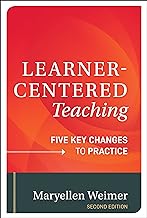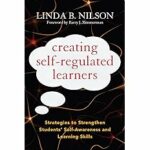Metacognition (thinking about thinking, learning about learning) is a core competency all students should acquire to assist them with understanding how they learn and then regulating their learning with effective strategies. If we don’t ensure students have competent skills to learn and understand their own learning – then why are we even teaching?
| Websites & Handouts |
| 10 Very Useful Teaching Strategies/Activities |
The first handout (curated, edited and enhanced by L. Knaack – 2023) shares a summary of 10 very useful teaching strategies/activities that any post-secondary teacher can use in their courses. Along with the handout, there are associated documents that go along with some of the strategies mentioned.
- Top Ten Metacognitive Teaching Strategies – PDF Version
- Modified Metacognitive Awareness Inventory (MAI) – PDF Version
- Scoring Guide for the Modified Metacognitive Awareness Inventory – PDF Version
- Approaches to Learning Chart (3 Approaches) – PDF Version
- Successful Students Differ Chart: Shallow and Deep Learners – PDF Version
|
| Definition: Thinking about One’s Thinking |
|
Metacognitive Teaching Strategies
|
|
| Student Resources to Support Metacognition |
|
Classroom Assessment Techniques
|
Classroom Assessment Techniques (CATs) refer to formative, assessment as learning activities for instructors to use to help build metacognitive skills and provide useful and timely feedback to students. Angelo and Cross wrote the definitive book in 1993, but others have taken their work and shared online.
- 50 CATS by Angelo and Cross: Techniques for Assessing Course-Related Knowledge & Skills – Handout
- Classroom Assessment Techniques – Vanderbilt University
- Classroom Assessment Techniques Handout – North Island College PDF Version
|
Cognitive Wrappers
|
Cognitive wrappers are reflective questions that are asked of students before, during and/or after a lesson, an exam, an assignment etc. The questions encourage students to reflect upon how they prepared, how they studied, how they planned and organized their time and how they will apply their learning to a future experience.
|
Concept Maps
|
Concept maps provide representations of relationships between concepts in a visual manner.
|
| Note-Taking |
If students had a more metacognitive approach to taking notes, they may be able to study and learn better.
|
| Reflective Writing |
When students have opportunities to reflect, think purposefully about their learning and have a chance to think about what is working and what is not – learning can be enhanced.
|
| Metaphors For Teaching |
Using metaphors to help explain a complex or abstract concept can help students conceptualize and make better connections with the content.
|
Top of Page
| Research Articles |
| Definition: Thinking about One’s Thinking |
- Dunning, D., Johnson, K., Ehrlinger, J., and Kruger, J. (2003) Why people fail to recognize their own incompetence. Current Directions in Psychological Science, 12(3). 83–87.
- Ehrlinger J, Johnson K, Banner M, Dunning D, Kruger J. Why the Unskilled Are Unaware: Further Explorations of (Absent) Self-Insight Among the Incompetent. Organ Behav Hum Decis Process. 2008 Jan 1;105(1):98–121. doi: 10.1016/j.obhdp.2007.05.002. PMID: 19568317; PMCID: PMC2702783. https://www.ncbi.nlm.nih.gov/pmc/articles/PMC2702783/
- Tanner, Kimberly D. (2012). Promoting student metacognition. CBE—Life Sciences Education, 11, 113–120.
- Pashler, H., McDaniel, M., Rohrer, D., & Bjork, R. (2008). Learning styles: Concepts and evidence. Psychological Science in the Public Interest, 9(3), 105–119.
- Pintrich, Paul R. (2002). The Role of metacognitive knowledge in learning, teaching, and assessing. Theory into Practice, 41(4). 219–225
- Stanton, J. D., Sebesta, A. J. & Dunlosky, J. (2021). Fostering Metacognition to Support Student Learning and Performance. CBE-Life Sciences Education, 20 (2). https://doi.org/10.1187/cbe.20–12-0289
|
| Metaphors for Teaching |
|
Top of Page
| Books |
 |
Learner Centered Teaching: Five Key Changes to Practice by Maryellen Weimer (2nd Edition – 2013)
- Maryellen Weimer―one of the nation’s most highly regarded authorities on effective college teaching
- learner-centered teaching focuses attention on what the student is learning, how the student is learning, the conditions under which the student is learning, whether the student is retaining and applying the learning, and how current learning positions the student for future learning
|
 |
Creating Self-Regulated Learners: Strategies to Strength Students’ Self-Awareness and Learning Skills by Linda B. Nilson (2013)
- An easy book to follow with treasure trove of short activities any instructor can embed into an existing course or class to increase students’ awareness of how to learn
- Most of our students neither know how learning works nor what they have to do to ensure it, to the detriment both of their studies and their development as lifelong learners
|
 |
Classroom Assessment Techniques: Formative Feedback Tools for College and University Teachers by Thomas A. Angelo and Todd D. Zakrajsek (Third Edition, June 2024)
- Completely revised and updated third edition provides a research-based, engaging guide to assessing student learning where it matters most―at course and classroom levels
|
Top of Page


